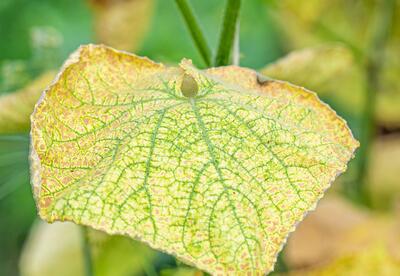Agdia, Inc (Elkhart, IN) has announced they have commercialized a rapid and user-friendly molecular test, based on their AmplifyRP® Acceler8® platform, for detection Tomato chlorotic dwarf viroid (TCDVd) in tomato and solanaceous ornamental crops.
TCDVd is a serious problem in tomato crops due to its ability to reduce yield and produce unmarketable fruit. Solanaceous ornamental crops that harbor the pathogen can serve as an inoculum source for the pathogen which can be transmitted to tomato. Routine testing for the pathogen is useful to help identify the pathogen and prevent its spread.
Viroids are unique from plant viruses because they are naked small RNAs that do not code for a coat protein. Immunoassays that are used in most plant virus testing applications are not an option. The lack of a TCDVd coat protein forces a molecular detection approach to be used to target TCDVd RNA. Typically this is done in a laboratory, using a technique known as polymerase chain reaction (PCR), by highly skilled technicians using sophisticated and expensive equipment.
Agdia’s AmplifyRP Acceler8 test for TCDVd is the first commercially available test to allow producers to test for TCDVd themselves on-site. It works by using an isothermal amplification technology called recombinase polymerase amplification (RPA). This technology allows rapid DNA or RNA amplification at constant operating temperature using a crude plant extract.
To run the test an end-user would select tissue from a suspect plant and extract it in a provided buffer filled mesh-bag. They then add a small volume of the plant extract to a lyophilized reaction tube that has been reconstituted with a provided solution. The reaction is then heated to 39°C using a portable heat block (provided separately) for 20 minutes. During this time TCDVd RNA, if present, will be amplified to detectable levels. Once the amplification step is completed the end-user places the reaction into an amplicon detection chamber which reports results as either negative (one-line) or positive (two-lines) on a lateral flow strip contained inside the device. The total time to perform the test is about 45 minutes including the sample extraction step.
The tests sensitivity is approximately 100 fg of in vitro transcribed TCDVd or 400 pg of the total plant RNA per reaction. It is specific to TCDVd and does not cross-react with other Pospiviroids.
Agdia’s AmplifyRP Acceler8 kits for TCDVd come with everything needed to perform the test except for the portable heat block, pipette, and tips. The excluded items can be purchased separately in a starter pack for around $300. The cost of a kit is $240 and each kit contains 8 tests. The test is also offered as a service by Agdia Testing Services for those who wish to send samples for diagnosis. For more information on the test contact Agdia at 574-264-2014 or via email at info@agdia.com
About Agdia
A leading provider of diagnostic solutions for agriculture, Agdia, Inc. has been serving plant breeders, propagators, growers, universities, and private testing laboratories since 1981. The company offers a comprehensive portfolio of validated, easy-to-use diagnostics for identifying plant pathogens, hormones, and transgenic traits, as well as in-house testing services.
About AmplifyRP
AmplifyRP Acceler8 Test Kits employ recombinase polymerase amplification (RPA) technology licensed by Agdia, Inc (licensee) from TwistDx Limited, U.K (licensor). Use of the RPA process and probe technologies are protected by US patents 7,270,981 B2, 7,399,590 B2, 7,435,561 B2, 7,485,428 B2 and foreign equivalents in addition to pending patents.
AmplifyRP® and Acceler8® are registered trademarks of Agdia, Inc.
###





